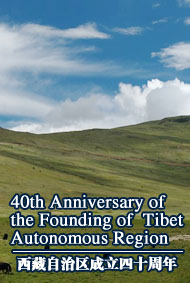|
Musk
( 2005-10-27 )
Although musk is not an herb, it is still a relatively important component of traditional Chinese medicine. Musk comes from the wild musk deer, which mainly lives in Tibet area about 5,000 meters above sea level.
It is produced in a musk pod, a gland located in a pouch or sac under the abdomen of the male musk deer. Typically, musk pods are harvested by being removed from the deer via a surgical procedure. They are then air-dried before being cut open to reveal a small, oval-shaped kernel.
The main chemical compound in musk is muscone, which gives musk its distinctive, persistent odor. The muscone is an important component of many perfumes, but also has medicinal properties.
In traditional Chinese medicine, musk is considered pungent and warm, and is affiliated with the heart and spleen meridians. Its main functions are to promote blood circulation, improve and restore menstrual flow, and relieve pain caused by traumatic injuries. Some practitioners have used musk in combination with herbs to help with slow or difficult childbirth, and to treat sore throats.
Musk is also a high-grade essence material.
|

